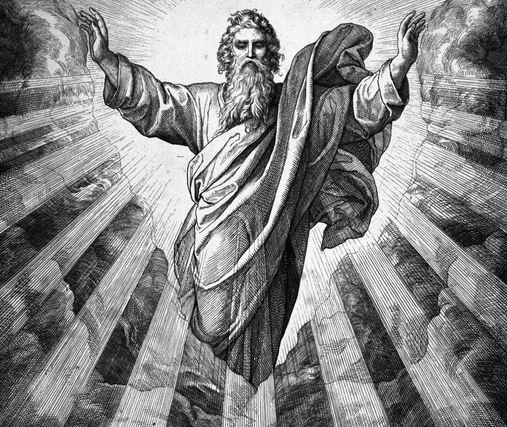The Creation

Creation is a central theme in many religious, philosophical, and scientific traditions. It refers to the origin of the universe, the earth, life, and humanity. The term "creation" is diverse and is interpreted differently depending on the perspective. Here are some of the most well-known understandings of creation in different contexts:
1. Religious Perspectives on Creation
Christianity
In Christianity, the creation story is found primarily in the Book of Genesis in the Old Testament. According to this story, God created the universe, the earth, life, and humanity in six days. The seventh day was the day of rest, on which God rested from his work. The most important stages of the Christian creation story are:
Day 1: God created light and separated it from darkness.
Day 2: God created the sky and separated the waters.
Day 3: God brought forth the land and created plants.
Day 4: God set the sun, moon, and stars to determine day and night.
Day 5: God created the sea creatures and the birds.
Day 6: God created the land animals and humans in his image, Adam and Eve.
Day 7: God rested.
The Christian creation story emphasizes the idea that the universe was created intentionally and with a divine plan.
Judaism
In Judaism, the creation story is also found in the Torah (the first part of the Hebrew Bible). It largely coincides with the Christian creation story. However, Judaism places greater emphasis on the importance of the day of rest (Shabbat), which plays a central role in the act of creation.
Islam
In Islam, creation is also understood as an act of divine will by Allah. The Quran describes creation as a clear and orderly process in which Allah created the heavens, the earth, plants and animals, as well as humans, in several phases. In Islam, too, creation is intentional and determined by Allah's will. Humans, created from clay in Islamic tradition, are a special creation of Allah, called to live on earth and to confess their devotion to Allah.
Hinduism
Hinduism has a diverse and complex view of creation. There is no single creation story, but many different myths. One of the most well-known is that of Brahma, the creator god who creates the universe. Hinduism views creation as cyclical—the universe is continually created, destroyed, and recreated. Brahma is often associated with Vishnu (the preserver) and Shiva (the destroyer), and together they form the trinity of Hindu deities (Trimurti), who administer the cycle of creation, preservation, and destruction.
Buddhism
In Buddhism, there is no creation story in the traditional sense. The focus is more on the cycle of life (samsara), which describes the constant emergence and decay of life forms and worlds. In Buddhism, the universe is viewed as an eternal cycle of rebirth and destruction, without a primary creator god. Humans are understood as part of this cycle and strive for enlightenment to break out of it.
2. Philosophical Perspectives
Platonic Creation
In ancient Greek philosophy, Plato developed the idea of an eternal, unchanging world of ideas that shapes the universe. For Plato, the creation of the physical universe was an active process of formative action, in which the creator god (the Demiurge) transformed the disordered into an ordered cosmos by projecting the ideal forms into the physical world.
Aristotelian Creation
According to Aristotelianism, the universe was in a kind of eternal movement and circularity from the beginning. Aristotle believed that the universe had no beginning and required no specific creator, but maintained its movement and order through natural causes and principles.
Deism
Deism, a philosophical movement of the Enlightenment, rejected the idea of a personal God who directly intervenes in the world. Instead, deists saw the world as created by a Creator God who set the universe in motion but withdrew after creation and no longer intervened. Creation was thus a unique, rational act that continues through the laws of nature.
3. Scientific Perspectives
Cosmology and the Big Bang Theory
The Big Bang Theory is the prevailing scientific explanation for the origin of the universe. According to this theory, the universe began about 13.8 billion years ago in a singular point of extremely high density and temperature. With the Big Bang, the universe expanded and cooled, leading to the formation of galaxies, stars, and planets. However, the theory describes the creation of the universe as a purely physical process without a divine creator, but rather as a consequence of natural laws.
Theory of Evolution
Charles Darwin's theory of evolution offers a scientific explanation for the development of life on Earth. According to this theory, life originated from simple chemical substances and evolved over millions of years into the diversity of living beings we know today. This view contradicts religious creation stories in many aspects, but emphasizes the process of natural selection and adaptation.
4. Symbolic and Spiritual Interpretations
For many spiritual or esoteric movements, creation is not only about the physical origin of the universe, but also about deeper symbolic or energetic processes. Creation is understood as a cosmic principle that exists not only in the material world, but also in the inner life of human beings. Creation can be seen as a process of awakening to consciousness, in which humans become aware of their own existence and their connection to the universe.
Summary
Creation is a concept that has different meanings in many traditions. In religious contexts, creation often refers to the intentional creation of the universe by a higher power. Philosophical and scientific perspectives often view creation from a rational or natural law perspective, explaining the origin of the universe as a consequence of cosmic processes or natural laws. In spiritual or esoteric traditions, creation can also be understood as a symbolic process of awareness or transformation.
The diversity of interpretations shows that the concept of creation has profound meaning both in relation to the physical origin of the universe and in a spiritual or metaphysical context.

